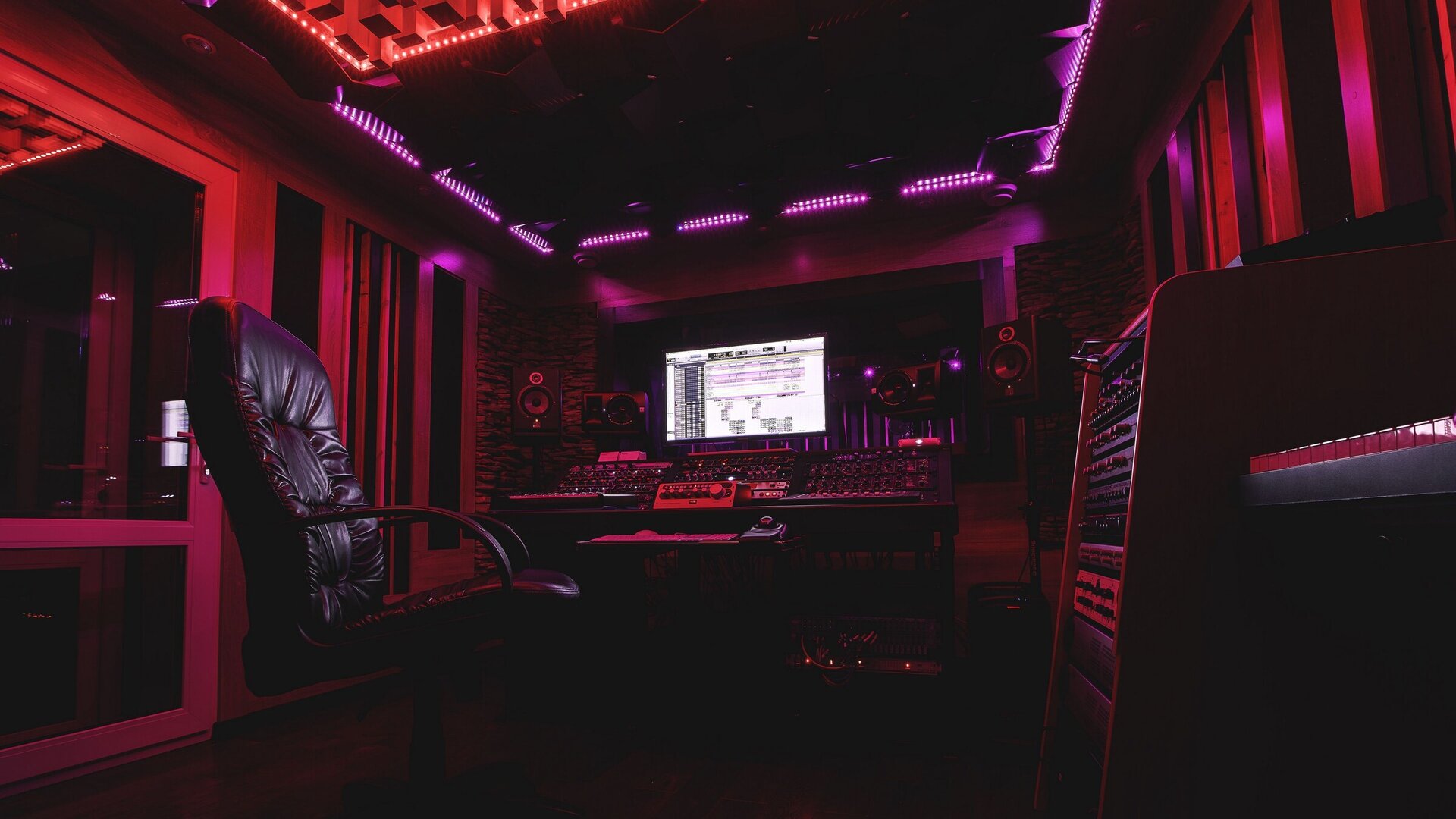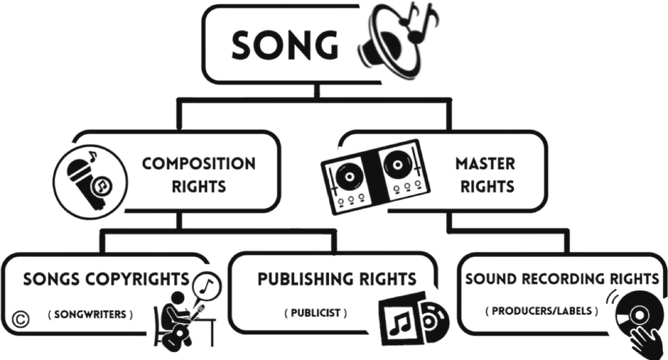Copyrights to any single piece of recorded music such as a composed song, are broken down into 3 main music ownership rights. All receiving multiple different royalty streams depending on how your music is played and the rights holder. This is a standard international practice across the board, for all music rights to any particular song. Some countries may have different names to royalty streams, however they all carry the same definition and purpose.
50% Composition Rights
Writers (Original Copyright)
Publicist ( Publishing Rights)
50% Master Rights
Producer/Label (Sound Recording Rights)
Writers Copyright
In music terminology, song writers are defined as whoever writes the lyrics to a song including whoever writes the underlying composition. To understand the term underlying, it is whoever is composing the melody or instrumental to your song, which includes instruments played by band members. They are all defined as writers, composing that piece of written music or writing your music's composition. Simple terms, both writers to the LYRICS and songs MELODY are both copyright owners to that original song’s composites.
Publishing Rights (Mechanicals)
Publishing rights are the music rights usually owned by the recording artists publicist, whose job is to publish your music or your song.
Eg. Like a book publisher, after you’ve written your book. Then publishing copies of your written works, that generate book sales and revenue for you as the author, but also rights owner to your books original copy.
In saying that, in today's music industry it's common practice for recording artists, have their publicist assigned the publishing rights to their music. Technically granting their music publicist nearly 50% of their music's generated royalties, and that would be every song they have them publishing. So if intend to work with a music publicist, guarantee ownership to your music's publishing rights, will more than likely be transferred over to them, usually stated within the terms of your signed publishing deal. Because as they see it, if it wasn't for them publishing your material out in the public domain, you'd have to push your own music.
Well I say that's fine in today's day in age, all possible now with the world-wide internet. Having the significance of a publicists position and role, now lacking a relevance or a need due to social media creators and music artists connecting directly to their fan-base. Especially with independent artists now days who are publishing and promoting a lot of their own music online.
Masters (sound recording rights)
A songs masters or master rights to a songs production are sometimes negotiated with the producer depending on the situation. If for example you pay for studio time usually an hourly rate, master rights to that song are completely yours and only just credits to your songs production goes to that producer for your songs recording. However, in some cases if you and the producer have the same amount of input into a song, say if:
The producer came up with the underlying beat adding extra synths, then changing his mind as he goes along doing a lot of mixing to the track, as you lounge out taking your time in the studio not having to worry about hourly payment.
Then its most likely the producer will own the masters to that recorded sound, while you own its compositions.
On the other-hand if you’re an assigned recording artist with a label which states in your contract, that they will give you an advance ( NOTE: you would have to pay this back ) and cover all your recording expenses and so forth. It is not actually a good thing, because the label will actually own the masters to that song or any song you record with them in the studio for that matter. Owning 50% rights to your entire music by default.
So, depending on how you intend to have your song released out into mainstream music. The defining point to your music copyright, if you’re not promoting or distributing your music yourself. Would be who you have employed or have assisting you achieve this. Sometimes you automatically relinquished certain rights to your music without even knowing it. Perhaps being offered or proposed a music deal with promises to songs exposure and fan-base build-up creating new opportunities for you as an artist and your career, while linking you up with their own personal contacts who are influential in the music industry. However, you agreeing to do this and with your song’s arrangements, you’re giving them full control in your songs handling. Not realizing at the time when signing this deal, you’re not only giving them the authority to make these promises happen for your song, but your actually signing certain ownership rights to your song in exchange for their service or whatever their role for your music was, resulting in creators not owning 100% music copyrights.


